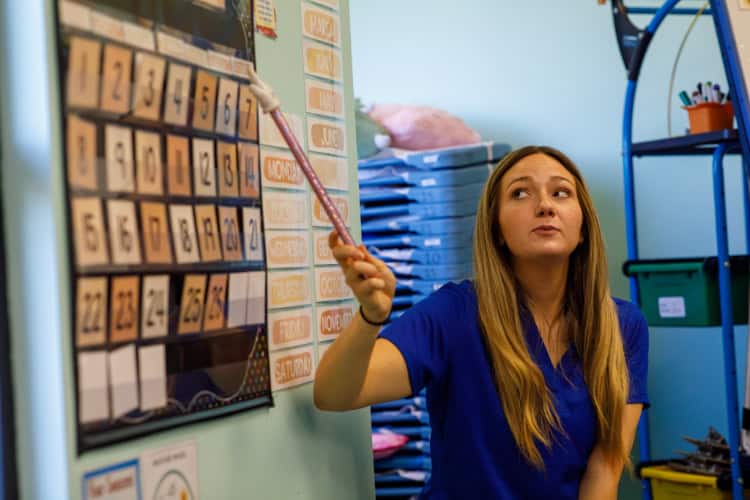
Choosing the best path for your child’s early years can be one of the most important decisions you make as a parent. While traditional daycare might provide a safe place for children to spend their days, early learning centers go above and beyond by nurturing your child’s cognitive, social, and emotional growth. Giving your child the gift of early education not only prepares them for school but sets them up for a lifetime of success.
Here, we’ll explore why early learning surpasses standard daycare, when to start your child’s educational journey, and practical ways to support their learning at home.
Why Early Learning is Better Than Standard Daycare
When weighing the choice between a daycare and an early childhood learning center, it’s important to understand the fundamental differences between the two.
1. Focus on Developmental Growth
Daycare centers typically focus on providing care and supervision, whereas early learning centers prioritize structured educational activities designed to stimulate your child’s mind. From cognitive skill-building exercises to interactive play, children are given ample opportunities to learn and grow.
2. Trained Educators and Curriculum-Based Programs
In an early learning center, your child is guided by trained educators who specialize in early childhood education. These professionals know how to create an environment that fosters exploration, creativity, and a love for learning. Unlike standard daycare, a curriculum-based approach means that your child will have tailored educational experiences that promote social skills, motor development, and academic readiness.
3. Social and Emotional Skills
Early education programs place a strong emphasis on social and emotional development. Group activities, collaborative play, and guided discussions help children learn important skills like sharing, empathy, and effective communication. These abilities give them a head start when it comes time to enter a formal classroom setting.
4. School Readiness
The ultimate goal of an early learning center is to prepare your child for kindergarten and beyond. By instilling foundational skills, building curiosity, and encouraging a positive attitude toward learning, early learning ensures that your child feels confident and ready for the challenges ahead.
When Should You Start Helping Your Child Learn?
The earlier you start your child’s educational journey, the better. Research shows that early learning during the first five years of life has a profound impact on brain development, setting the stage for future academic success and social skills. So, when should you start? The answer is simple: as early as possible!
- Infants and Toddlers: Even at a young age, babies absorb an incredible amount of information from their environment. Simple interactions, like talking to your baby, singing songs, or playing peek-a-boo, stimulate their brain and build language skills.
- Preschool Age: By the time your child reaches preschool age (around 3-4 years old), structured early education becomes crucial. This is the perfect time to introduce them to a more organized learning environment, like an early childhood learning center, where they can thrive alongside peers.
Tips to Help Your Child Learn
Supporting your child’s learning journey doesn’t stop at the early learning center. Here are some practical tips to reinforce your child’s development at home:
- Read Together Daily: Reading to your child, even for just 15-20 minutes a day, can significantly boost their vocabulary, comprehension, and love of books. Create a cozy reading nook and make story time a special part of your routine.
- Encourage Curiosity and Questions: Children are naturally curious. Encourage their curiosity by answering their questions thoughtfully and introducing them to new experiences. Take trips to the park, museums, or even do simple science experiments at home.
- Provide Open-Ended Play Opportunities: Open-ended play activities, like building blocks, art supplies, and imaginative games, help develop critical thinking and problem-solving skills. Let your child’s imagination run wild!
- Create a Routine: Children thrive on consistency. Establishing a daily routine that includes time for learning, play, meals, and rest creates a sense of security and helps children develop time-management skills.
- Use Positive Reinforcement: Acknowledge your child’s achievements, no matter how small. Positive reinforcement boosts confidence and encourages them to continue exploring and learning.
- Sing and Play Music: Music and rhymes are great for early language development and memory. Simple songs, clapping, or even playing instruments can be a fun way to help your child learn new words and concepts.
- Engage in Hands-On Activities: Activities like baking, gardening, and crafts provide opportunities to learn math, science, and language in a hands-on, interactive way.
- Foster Social Interactions: Arrange playdates, take your child to community events, or encourage group activities at their early childhood learning center. These interactions are vital for developing social skills and building friendships.
The Lifelong Gift of Early Education
Investing in early learning gives your child a head start academically, socially, and emotionally. It helps them build confidence, develop important skills, and fosters a love of learning that will last a lifetime. By choosing an early childhood learning center over standard daycare, you’re giving your child the tools they need to thrive in school and beyond.
By partnering with dedicated educators and making learning a priority at home, you can ensure that your child receives the best start possible. Early education truly is a gift—one that continues giving throughout your child’s life.
Want more tips and information like this? Sign up for our newsletter to receive monthly emails with great parenting advice and updates!


